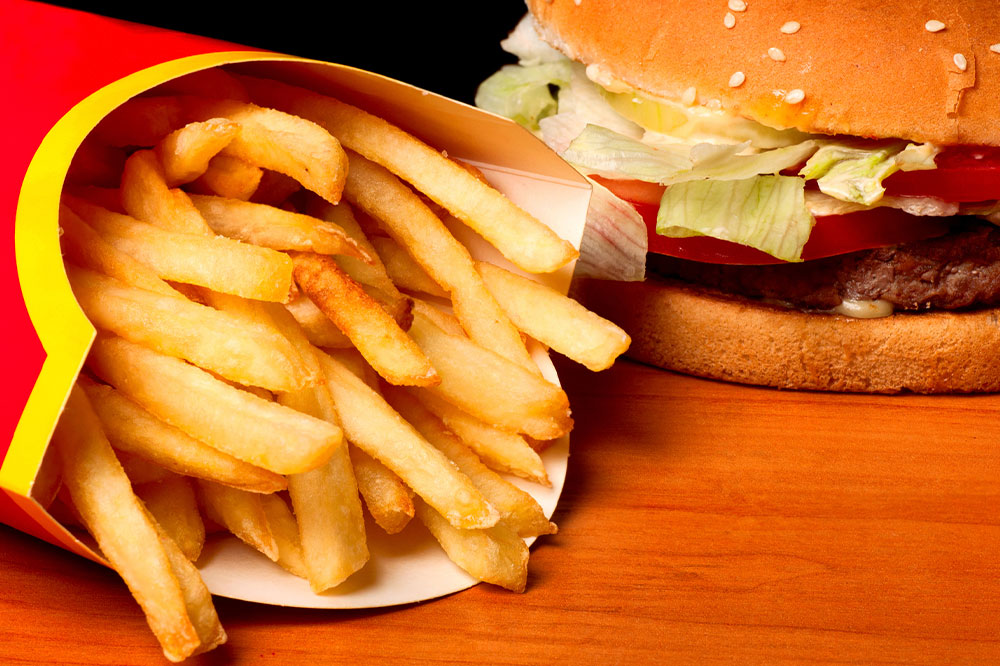Essential Dietary Guidelines for Managing Bipolar Disorder: Foods to Watch Out For
This comprehensive guide explores essential dietary strategies for managing bipolar disorder. It highlights foods to avoid, such as caffeine, alcohol, sugar, and unhealthy fats, emphasizing how these can impact mood stability and overall well-being. Practical tips for maintaining a balanced, mood-supportive diet are included, along with guidance on nutrient choices to enhance mental health. Proper nutrition is shown to be a vital component of bipolar disorder management, complementing medication and therapy. Discover how mindful eating can contribute to a more stable, healthier life for those affected by bipolar disorder.

Comprehensive Dietary Strategies to Support Bipolar Disorder Management
Managing bipolar disorder goes beyond medication and therapy; nutrition plays a vital role in maintaining mood stability and overall mental health. Unhealthy dietary habits can exacerbate symptoms, while mindful eating can contribute significantly to symptom management and enhance quality of life. While there isn't a universally prescribed diet for bipolar disorder, avoiding certain foods known to influence mood swings and trigger episodes can be highly beneficial. In this article, we’ll explore various dietary considerations, focusing on foods that individuals with bipolar disorder should be cautious of or limit to promote emotional equilibrium and physical well-being.
Understanding the Impact of Diet on Bipolar Disorder
Multiple studies highlight the connection between diet and mental health, especially for individuals with bipolar disorder. Nutritional choices can influence neurotransmitter activity, hormone regulation, and inflammation levels, all of which play roles in mood regulation. Recognizing foods that may destabilize mood allows sufferers and caregivers to develop better eating habits, create balanced meal plans, and support medication efficacy.
Let's delve into specific food categories that should be limited or avoided for better management of bipolar symptoms:
Caffeine: Caffeine, present in coffee, tea, energy drinks, and chocolate, can temporarily increase alertness but also stimulates the central nervous system. For individuals with bipolar disorder, excess caffeine can trigger manic episodes or rapid mood swings. Moreover, caffeine disrupts sleep patterns, and sleep deprivation is a known precipitant of mood episodes. To avoid these issues, it is advisable to reduce caffeine intake, especially later in the day, and consider decaffeinated options where possible.
Alcohol: Alcohol consumption can interfere with the effectiveness of bipolar medications, such as mood stabilizers, and exacerbate mood instability. Alcohol's depressive effects can sometimes intensify mood swings, increase impulsivity, and impair judgment. Additionally, research indicates that alcohol use among bipolar patients is linked to a higher risk of premature death and worsened clinical outcomes. For safer mental health management, limiting or abstaining from alcohol is highly recommended.
Sugar: Diets high in refined sugars and processed sweets have been associated with increased manic episodes, weight gain, and metabolic issues. Rapid blood sugar spikes can disturb mood regulation, leading to irritability and energy fluctuations. Substituting sugary snacks with fruits or natural sweeteners can help stabilize blood glucose levels, aiding in mood stability and overall health. Maintaining a balanced intake of complex carbohydrates also supports mental clarity and physical vitality.
Salt and Sodium: For those on lithium or other mood stabilizers, maintaining a consistent salt intake is crucial. Lithium's effectiveness is sensitive to sodium levels; fluctuations can result in toxicity or reduced efficacy. Excessive salt intake can influence kidney function and hydration, which are essential for medication absorption. Patients should monitor their sodium consumption, stay well-hydrated, and follow healthcare providers' guidelines to manage salt balance effectively.
Fats – Focusing on Good Fats: The type of fats consumed can influence heart health and mental well-being. Trans fats and saturated fats, common in fried and processed foods like fast food, baked goods, and snack items, can increase inflammation and impair cognitive and mood-related functions. Incorporating healthy fats such as omega-3 fatty acids found in fatty fish (like salmon, mackerel, and sardines), walnuts, and flaxseeds can support brain health and may have mood-stabilizing effects. Choosing lean meats, low-fat dairy, and plant-based oils like olive oil helps to maintain optimal health and emotional balance.
Additional Tips for a Mood-Supportive Diet
In addition to avoiding certain foods, incorporating nutrient-dense and mood-enhancing foods can further assist in bipolar disorder management. Regular meal timings, balanced macronutrient intake, and a focus on whole foods help stabilize blood sugar and mood swings. Staying hydrated by drinking sufficient water and limiting processed foods can prevent dehydration-related mood disturbances. Mindful eating practices, combined with support from healthcare professionals, can lead to better outcomes.
In summary, making informed dietary choices by minimizing or avoiding caffeine, alcohol, excessive sugar, and unhealthy fats can significantly improve mental health outcomes for individuals with bipolar disorder. Coupling these habits with proper medication and therapy forms a holistic approach to managing this complex condition. Remember, always consult healthcare providers or registered dietitians before making major dietary changes to ensure they are tailored to personal health needs and medications.





